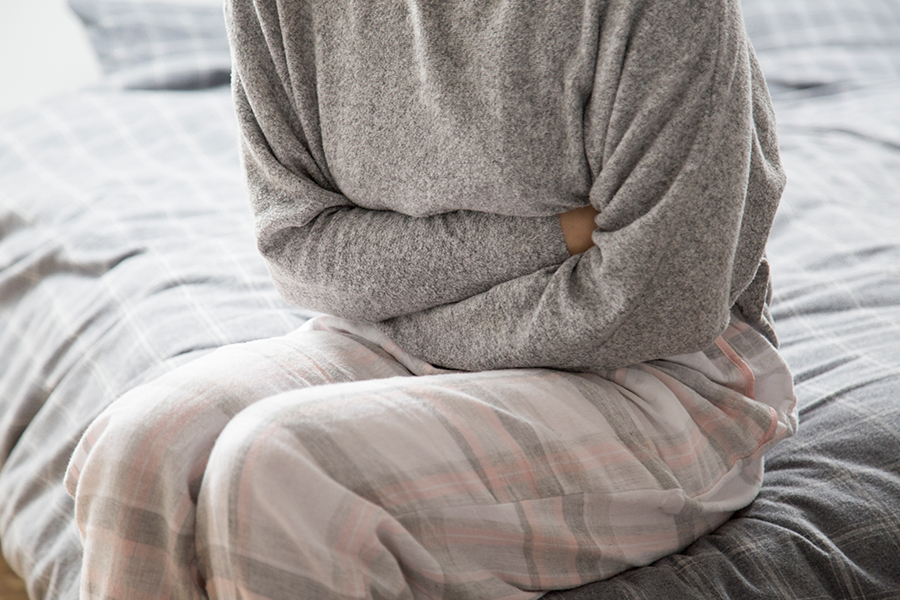Typically, the duration of SIBO die-off can range from a few days to several weeks, depending on various factors, such as the severity of your condition and the treatment approach you’re following. Understanding what to expect during this die-off phase is vital for managing symptoms and maintaining your overall health. As you navigate this process, you may experience a mix of both relief and discomfort and being informed can help you cope with the changes while your body adjusts to the treatment.
What is SIBO?
Before submerging into the complexities of SIBO, it’s imperative to understand that this condition significantly impacts your digestive system and overall health. SIBO, or Small Intestinal Bacterial Overgrowth, occurs when excessive bacteria grow in your small intestine, leading to various gastrointestinal issues. Identifying the core aspects of SIBO will help you manage and treat the symptoms effectively.
On a fundamental level, SIBO refers to a situation where an abnormal increase in bacteria resides in your small intestine. While the large intestine is home to a complex array of bacteria, the small intestine is typically less populated. When bacteria from your colon overgrow into the small intestine, it disrupts proper digestion and absorption, leading to a range of uncomfortable symptoms.
Causes and Symptoms
Causes of SIBO often involve factors that disrupt normal digestion, such as decreased stomach acid, anatomical abnormalities, or motility disorders. Symptoms can vary widely but frequently include bloating, diarrhea, abdominal pain, and fatigue. You might also experience unintended weight loss or nutritional deficiencies if left untreated.
It is imperative to understand that various underlying issues can contribute to SIBO. Conditions such as irritable bowel syndrome, diabetes, and certain medications can predispose you to bacterial overgrowth.
Additionally, lifestyle factors like diet and stress levels can exacerbate the condition, causing further complications in your gastrointestinal health. Being aware of these causes can assist you in seeking appropriate treatment and managing your symptoms effectively.
SIBO Die-Off Phenomenon

If you’ve been diagnosed with SIBO, you might experience a die-off phenomenon as bacteria die off in your gut. This process can lead to the release of toxins, which may lead to temporary discomfort. Understanding this phenomenon is important in managing your treatment and symptoms effectively.
What is Die-Off?
To put it simply, die-off refers to the reaction your body experiences when harmful bacteria, like those involved in SIBO, begin to die rapidly. During treatment, the eradication of these bacteria can cause the release of endotoxins, triggering various responses in your body as it adjusts to the changes.
Sibo Die-Off Symptoms
Phenomena like fatigue, headaches, digestive issues, and skin rashes can emerge as your body reacts to the rapid elimination of bacteria. These symptoms are often mistaken for worsening symptoms of SIBO, making it important to differentiate between treatment reactions and ongoing SIBO challenges.
Symptoms can be mitigated through various supportive therapies such as acupuncture, massage, and yoga. Incorporating these therapies into your routine can improve circulation, reduce stress, and promote relaxation during the die-off phase. In addition, guided meditation or mindfulness practices may help you cope with anxiety and enhance your overall mental health.
A variety of symptoms can arise during the die-off phase, and their severity can vary from person to person. Some individuals report sibo die-off experiences as flu-like symptoms, irritability, or even mood swings. Knowing these potential reactions empowers you to better manage your SIBO treatment journey and maintain realistic expectations throughout the process.
Click here to know more about Sibo Die-Off Symptoms
How long do Sibo die-off Symptoms Last?
Some individuals experiencing SIBO die-off can encounter symptoms that last from a few days to several weeks. The duration of your die-off phase may vary based on several factors, including the severity of your SIBO, treatment methods, and your overall health. It’s important to listen to your body and consult with a healthcare professional during this time.
Factors Influencing Duration
Before determining how long you might feel the effects of die-off, consider that various factors can influence the duration of symptoms:
- Severity of SIBO
- Type of treatment used
- Your overall health status
- Dietary choices during treatment
- Dietary choices during treatment
- Hydration levels
Recognizing these factors can help you prepare for and manage the die-off experience.
Average Time Frames
One common timeline for die-off symptoms tends to range from a few days to about two weeks. However, every case is unique, and your experience may differ significantly. Strain variations and the effectiveness of your treatment protocol can all play a role.
To provide more insight, some individuals report peak symptoms in the first week, gradually tapering off thereafter. Others may experience longer-lasting symptoms if their SIBO is more complex or if they’re undergoing more intensive treatment. It’s vital to stay attuned to your body and communicate any persistent issues with a healthcare professional for tailored support.
Managing Die-Off Symptoms

Your experience with die-off symptoms can be overwhelming, but effective management strategies exist. It’s vital to listen to your body and identify what helps alleviate discomfort during this phase. Staying hydrated, implementing relaxation techniques, and adjusting your lifestyle choices can significantly improve your overall well-being and aid your recovery from SIBO.
Dietary Adjustments
An effective approach to managing die-off symptoms is through dietary adjustments. Upon implementing a low-FODMAP diet or an elimination diet, you can help reduce the symptoms that may accompany the die-off process. Focus on whole, unprocessed foods while gradually eliminating sugars and gluten, which can exacerbate discomfort.
Supportive Therapies
Symptoms can be mitigated through various supportive therapies such as acupuncture, massage, and yoga. Incorporating these therapies into your routine can improve circulation, reduce stress, and promote relaxation during the die-off phase. In addition, guided meditation or mindfulness practices may help you cope with anxiety and enhance your overall mental health.
Adjustments in your routine to include supportive therapies can make a substantial difference in how you experience die-off. Regular practice of these therapies allows you to develop a personalized approach that addresses the physical and emotional stressors of SIBO. By integrating these techniques, you empower yourself to navigate this challenging phase more effectively and facilitate healing.
When to Seek Medical Advice
Once again, it is vital to consult with a healthcare professional if your SIBO die-off symptoms become overwhelming or persist for an extended period. Your doctor can help assess your situation and determine whether you need further intervention or a change in treatment strategy. Don’t hesitate to reach out, as timely medical advice can significantly improve your quality of life during this challenging phase.
Symptoms to Watch For
To effectively manage your SIBO die-off, it’s important to be aware of specific symptoms that may indicate a need for medical intervention. Watch for severe abdominal pain, persistent vomiting, high fever, or significant changes in bowel habits. These symptoms can signal complications that should be addressed promptly by a healthcare provider.
Treatment Options
Against the backdrop of discomfort during the SIBO die-off, several treatment options may help alleviate your symptoms. These can include dietary adjustments, herbal antimicrobials, or prescription antibiotics. Your healthcare provider will guide you toward the most suitable option based on your individual case and medical history.
Seek to explore comprehensive treatment approaches that may also include lifestyle changes, such as stress reduction techniques and proper hydration. Probiotics can aid your recovery by restoring gut balance, while specific dietary adjustments may help reduce symptoms. Working closely with your healthcare provider is important for developing a tailored plan that can effectively support your healing journey.
To wrap up
So, understanding how long SIBO die-off lasts is necessary for managing your symptoms effectively. Typically, this phase can range from a few days to several weeks, depending on the individual and treatment protocols. During this period, you may experience uncomfortable symptoms, but they often signify that your treatment is working. Listening to your body and consulting with your healthcare professional can help you navigate this process, ensuring you receive the necessary support to alleviate your symptoms and promote healing.
FAQs
Q: How long can the die-off symptoms from SIBO last?
A: The duration of die-off symptoms from SIBO can vary significantly among individuals. Generally, symptoms may persist from a few days to several weeks, depending on factors such as the severity of the condition, the treatment regimen, and the individual’s overall health. It’s common for symptoms to be most intense during the initial phase of treatment.
Q: What are common symptoms experienced during the SIBO die-off phase?
A: During the die-off phase, individuals may experience a range of symptoms, including bloating, gas, diarrhea, fatigue, and abdominal discomfort. These symptoms arise as the body reacts to the rapid die-off of bacteria in the small intestine. It’s important to monitor these symptoms as they may indicate how well the treatment is working.
Q: How can I alleviate die-off symptoms while treating SIBO?
A: To help ease die-off symptoms, individuals may find relief by staying hydrated, consuming a balanced diet rich in fiber, and taking probiotics or digestive support supplements. Additionally, engaging in gentle physical activity and getting adequate rest can also support the body’s healing process during treatment.
Q: Is there a way to predict how long my SIBO die-off will last?
A: Unfortunately, there is no definitive way to predict the duration of die-off symptoms for each individual. Each person’s body responds differently to treatment, which can be influenced by their unique microbiome, the type of treatment being used, and lifestyle factors. Monitoring your symptoms and consulting with a healthcare professional can provide better insight into your specific situation.
Q: When should I be concerned about prolonged die-off symptoms from SIBO?
A: If die-off symptoms persist for longer than a few weeks or if they become increasingly severe, it’s advisable to consult with a healthcare provider. Prolonged or worsening symptoms may indicate complications or other underlying issues that may require a reevaluation of the treatment plan.

